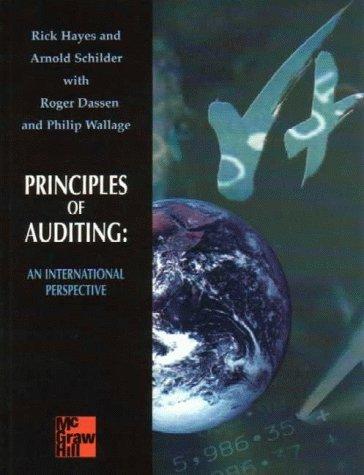Question
Western Electric Utility Company faces increasing needs for capital. Fortunately, it has an A (low) credit rating. The corporate tax rate is 30 percent. Westerns
Western Electric Utility Company faces increasing needs for capital. Fortunately, it has an A (low) credit rating. The corporate tax rate is 30 percent. Westerns treasurer is trying to determine the corporations current weighted average cost of capital to assess the profitability of capital budgeting projects. Historically, the corporations earnings and dividends per share have increased at about a 5.2 percent annual rate.
Western Electrics common stock is selling at $61 per share, and the company will pay a $3.50 per share dividend (D1). The companys $90 preferred stock has been yielding 5 percent in the current market. Flotation costs for the company have been estimated by its investment dealer to be $3.00 for preferred stock. The companys optimum capital structure is 40 percent debt, 15 percent preferred stock, and 45 percent common equity in the form of retained earnings. Refer to the table below on bond issues for comparative yields on bonds of equal risks to Western Electric, maturing in 2038.
Data on Bond Issues
Issue Rating Price Yield to Maturity Utilities: Valnet 6.17 2037 BBB (high) 99.38 6.61 Transcanada 6.65 2038 A (low) 103.46 4.33 West Coast Energy 6.03 2039 A (high) 99.84 6.78 Industrials: Manulife Financial 5.90 2036 BBB 99.54 6.50 Dillard's Departmental Store 5.39 2037 A(low) 95.71 6.83
a. Compute the cost of debt, Kd. (Input your answer as a percent rounded to 2 decimal places.)
Cost of debt %
b. Compute the cost of preferred stock, Kp. (Input your answer as a percent rounded to 2 decimal places.)
Cost of preferred stock %
c. Compute the cost of common equity in the form of retained earnings, Ke. (Input your answer as a percent rounded to 2 decimal places.)
Cost of common equity %
d. Compute the weighted average cost of capital. (Input your answer as a percent rounded to 2 decimal places.)
Weighted Cost Debt (Kd) % Preferred stock (Kp) % Common equity (Ke) % Weighted average cost of capital (Ka) %
Step by Step Solution
There are 3 Steps involved in it
Step: 1

Get Instant Access to Expert-Tailored Solutions
See step-by-step solutions with expert insights and AI powered tools for academic success
Step: 2

Step: 3

Ace Your Homework with AI
Get the answers you need in no time with our AI-driven, step-by-step assistance
Get Started


